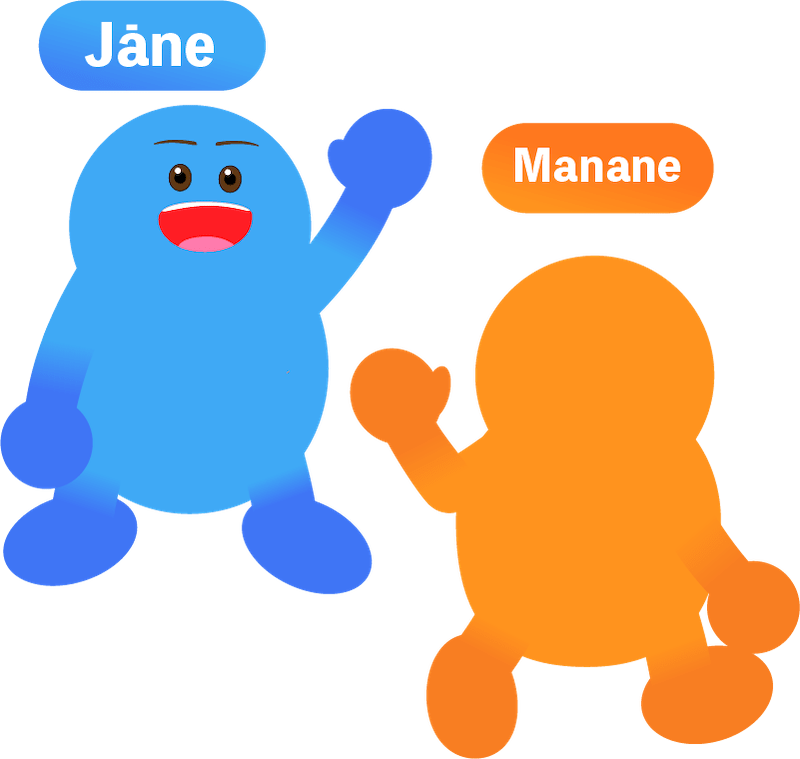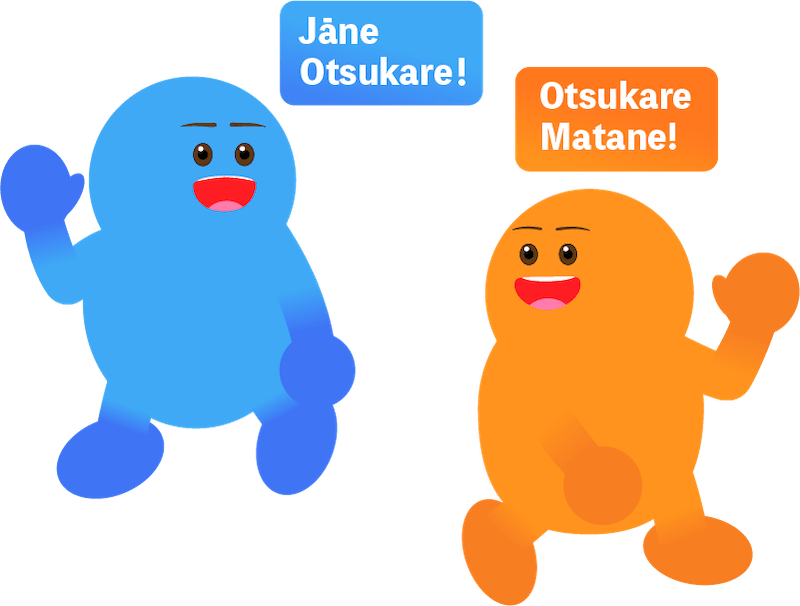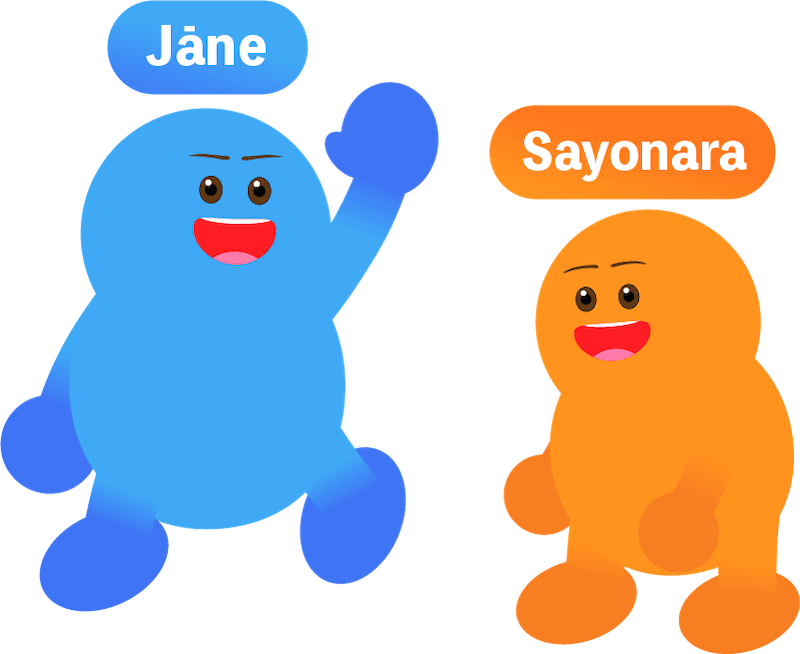
When you say bye to your friend.

If you want to say "Goodbye" and you say:
Sayōnara
You may have already heard this phrase but it's actually a formal way of saying "goodbye", so you wouldn't typically use it with your family or close friends.
By the way, many people actutally say SAYONARA instead of SAYŌNARA.
Sayonara
It is a bit more casual and rolls off the tongue easily, so you'll hear it a lot.
You can say either way, but if you're aiming for proper speech, Sayōnara is the way to go, even though personally, I usually go with Sayonara.
Just like in English, there are several ways to say "Bye" in Japanese, so let me run you through a few common ones.
Jāne
This is what we often say when casually saying "Bye" to family or close friends.
Matane
Another casual way of saying "Bye".
Both Jāne and Matane are popular, so pick whichever feels right to you. I use them both pretty much equally.
Mata Ashita
When you know you'll see the person again the next day, you can say MataAshita, which means "See you tomorrow".
Mata : again
Ashita : tomorrow
So it literally means "again tomorrow"
If you want to say "See you next week", you can say:
Mata Raishū
Raishū : next week
As you already learned, Otsukare is used to say "Hi" but it is also used for "Bye" especially between friends.
You will even hear a combo of Jāne or Matane and Otsukare when you're leaving a friend.

So you can use either one of them but there’s one situation where everyone uses Otsukare and it's when leaving work.
Remember that I told you that Otsukare is used to show appreciation for our coworkers' hard work?
So when we get off work and leave our workplace, we always say Otsukare or OtsukareSamadesu to our coworkers.

When you say bye to your friend.

When you say bye to your teacher. *You don't say Otsukaresama to your teacher.

Between senpai and kōhai.

When you leave your office.

When you say bye to your boss.
So, a handy rule of thumb: use Sayōnara with someone you speak to in Keigo and Jāne or Matane with someone you talk to in Tameguchi.
When you leave your workplace, it's always Otsukare or OtsukareSamadesu.